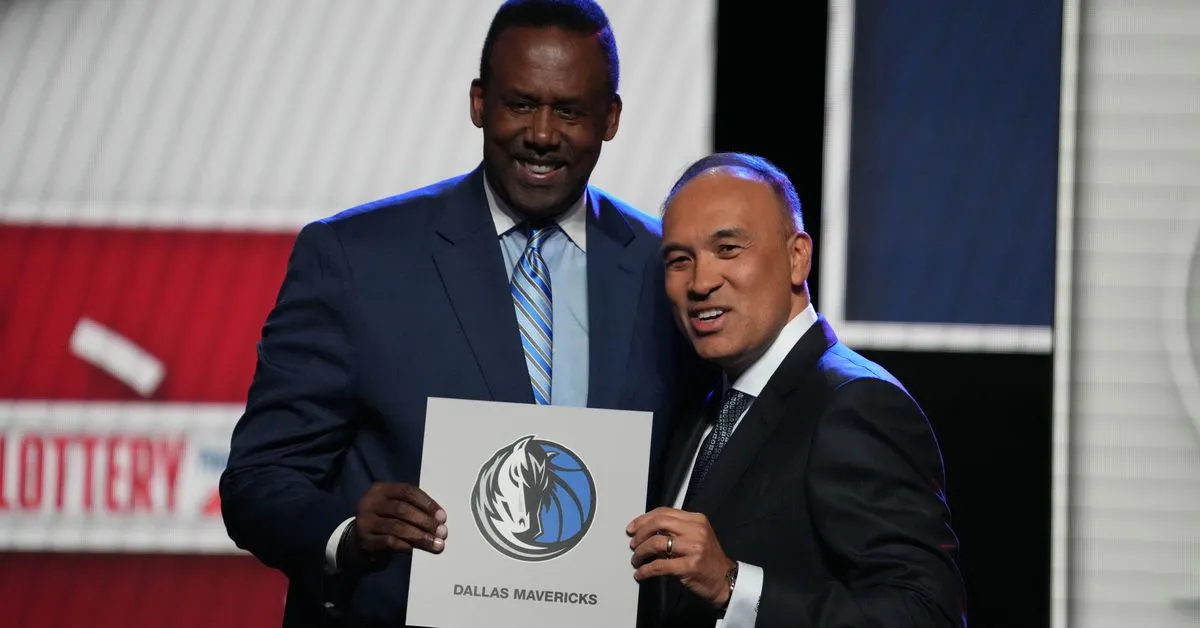
The San Antonio Spurs currently possess the coveted No. 2 overall pick in the upcoming 2025 NBA Draft. With a focus on enhancing their roster, the question arises: if the draft were to take place today and star prospect Cooper Flagg were off the board, who should the Spurs select? Experts weigh in on the options available.
Marilyn Dubinski emphasizes that the Spurs' decision may hinge on their assessment of current and future team needs. Dylan Harper appears to be the consensus choice for the No. 2 pick following Flagg. However, Dubinski questions whether Harper would be redundant alongside existing players like Derrick Fox and Stephon Castle. The Spurs also require a backup point guard and more size, yet the draft lacks elite big men. Ace Bailey is mentioned as a potential candidate, though his unpredictability could be a concern.
Mark Barrington supports the idea of selecting Harper, viewing him as the best available talent. He acknowledges that while the fit may not be perfect, having Harper develop as a bench player could be beneficial. This strategy might allow the Spurs to trade one of their current point guards for additional assets in the future. Barrington also suggests considering a trade down if it enables the acquisition of Bailey or Edgecombe, provided it includes gaining another rotation player.
Jacob Douglas argues that the Spurs should prioritize selecting the best player available, which he believes is Harper. He highlights Harper's positional versatility, allowing for potential lineups that incorporate him, Castle, and others effectively. With Harper's scoring ability and ongoing improvement, Douglas envisions him as a future All-NBA caliber player.
Jesus Gomez, while admitting he hasn't conducted extensive research on the prospects, concurs that Harper is the right choice based on early observations. He acknowledges potential offensive challenges with a lineup featuring Fox, Castle, and Harper but believes their combined ability to penetrate defenses could be advantageous.
The discussion then shifts to whether the Spurs should consider trading their No. 2 overall pick for immediate help in supporting Victor Wembanyama. Dubinski notes that the decision would rely heavily on the return. She expresses skepticism about trading for aging stars like Kevin Durant or even Giannis Antetokounmpo, as both scenarios could deplete their young core and complicate future financial obligations.
Barrington highlights the challenges of the NBA salary structure, explaining that acquiring an established star often requires sending out significant salaries. He supports exploring a deal for Antetokounmpo but urges caution to avoid compromising the team's depth.
Douglas raises an important point about the balance between immediate success and long-term strategy. He references teams like the Oklahoma City Thunder, who have built their assets patiently, versus the New Orleans Pelicans, who traded away their assets without achieving lasting success. Douglas advocates for selecting young talent, suggesting that with the right acquisitions, the Spurs could become a playoff team next season.
Gomez believes the Spurs should at least consider trading the pick if an enticing deal arises, noting that if Wembanyama remains healthy, there is merit in pursuing immediate success.
In the aftermath of the lottery, Dubinski identifies the Dallas Mavericks as significant winners along with the Spurs. She notes that while the Mavericks may not deserve the luck they received, they have secured a promising player in Flagg. The Philadelphia 76ers also come out ahead by retaining their top-6 protected pick, much to the relief of their fans.
Barrington agrees with Dubinski's assessment, adding that the Spurs' situation, despite not being ideal, is still a fortunate outcome. He expresses sympathy for teams like the Utah Jazz, who, despite their efforts, landed the fifth pick, which offers limited lottery odds.
Douglas criticizes the lottery system itself, claiming it perpetuates a cycle of tanking and fails to fulfill its purpose of balancing the league. He also notes that while the Mavericks may be winners now, their fortune comes at the expense of teams that consistently struggle.
Lastly, Gomez echoes concerns about the league's credibility with fans following the lottery results, particularly regarding conspiracy theories surrounding the Mavericks' good fortune. He concludes by acknowledging that while the Spurs may not have moved up, they remain in a strong position for the future.